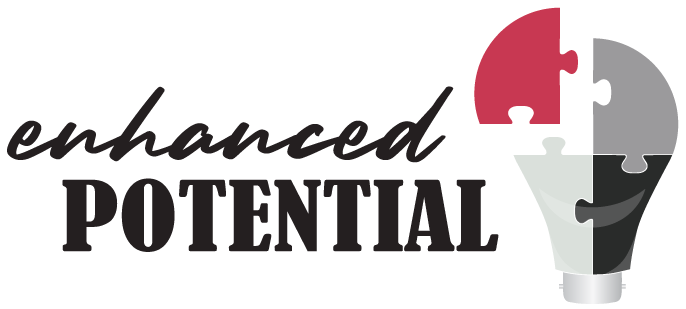The Top 10 Common Job Interview Mistakes Mid-Career Women Make (And How to Avoid Them)
Job interviews can feel like high-stakes conversations—especially when you’re a mid-career professional woman navigating career growth, leadership transitions, or a return to work. Despite deep experience and capability, many women unconsciously fall into familiar traps during interviews that undermine their confidence, presence, and potential impact.
In this guide, we’ll unpack the top 10 most common job interview mistakes mid-career women make—and more importantly, how to avoid them. We’ll also explore key insights from Dr. Claire Zammit’s work on power blocks, the confidence gap, and the socialised mind, all of which help explain why these patterns show up—and how you can shift them.
- Underplaying Your Achievements
Too often, women use “we” when describing their accomplishments—“We delivered the project on time”—instead of claiming their individual impact. While collaboration is valuable, interviews are about showcasing what you bring to the table.
How to fix it: Practice using “I” statements to describe the role you played. Explain the impact you had, using measurable outcomes where possible. This isn’t arrogance—it’s clarity.
- Waiting to Feel 100% Ready
Many mid-career women still feel they must tick every single box on a job ad before applying or saying yes to an opportunity. This stems from a cultural conditioning Claire Zammit refers to as the Power Block of Perfectionism—waiting to be flawless before stepping forward.
How to fix it: You don’t need 100% of the selection criteria—you need to join the dots. Focus on transferable skills, adjacent experiences, and your ability to learn quickly. The best hires are resourceful, not perfect.
- Overtalking or Overqualifying Answers
You’ve probably heard the saying, “Don’t talk yourself out of the sale.” In interviews, overexplaining or overqualifying responses can come from a place of self-doubt or fear of not being enough. This is the confidence gap in action.
How to fix it: Keep your answers structured and concise. Use the STAR method (Situation, Task, Action, Result) to stay on track. Silence is okay—pause, breathe, and let your answers land.
- Talking Too Little or Minimising Yourself
At the other end of the spectrum, some women downplay their experience out of Imposter Syndrome—focusing on what they lack instead of what they bring.
How to fix it: Reframe your internal dialogue. Focus on evidence from your career that demonstrates competence, leadership, and results. Affirm your strengths before the interview—you belong in the room.
- Avoiding Assertive Communication
Many women are raised with the belief that being likable means being humble or soft-spoken. But interviewers need clarity, confidence, and conviction. This is where assertive communication comes in.
How to fix it: Be direct and confident in your responses. Practice using power phrases like “I led…”, “I implemented…”, “The outcome was…”. This doesn’t just communicate effectiveness—it builds trust.
- Not Signalling Confidence Through Body Language
Your body language can either reinforce or undermine your message. Slouching, fidgeting, or making yourself small sends signals to both the interviewer and your own brain that you’re unsure.
How to fix it: Use “outside-in” confidence strategies like sitting upright, making eye contact, and using open gestures. These physical cues help regulate cortisol, boost dopamine, and allow your brain to think clearly under pressure.
- People-Pleasing Instead of Evaluating the Role
Many women show up in interviews trying to earn the job rather than exploring whether it’s a mutual fit. This can lead to people-pleasing responses and masking your real self.
How to fix it: Remember—you are shopping for a job too. Prepare a few key questions to ask the interviewer that help you assess if the role and culture align with your values. Be authentic, not just agreeable.
- Not Demonstrating Relatability or What It’s Like to Work With You
In technical or leadership roles, it’s not just about what you can do—it’s about how you do it. Interviewers want to know what it will feel like to work with you.
How to fix it: Share stories that illustrate how you lead, collaborate, or navigate tough conversations. Show your humanness—empathy, adaptability, emotional intelligence. It’s not a weakness—it’s a superpower.
- Misunderstanding the Expectation Gap
Many mid-career women believe that being highly qualified means the job is “in the bag”—but this overlooks what I call the Expectation Gap. Companies are not just looking for skills—they’re evaluating alignment, attitude, and presence.
How to fix it: Understand that success in interviews is about resonance, not just resumes. Reflect on what the role truly requires—strategic thinking, calm under pressure, influence—and tailor your examples accordingly.
- Letting the Power Penalty Hold You Back
Lastly, Claire Zammit talks about the Power Penalty—the internalised fear that stepping into visible power will lead to rejection, criticism, or disconnection. This fear keeps many women playing smaller than they are.
How to fix it: Own your power. Rewire your belief that being visible means being unsafe. Your career evolution is not selfish—it’s a ripple effect that inspires others. Practice mental rehearsal before the interview: visualize being grounded, articulate, and powerful.
Final Thoughts: Step Into Your Next Chapter with Clarity and Confidence
Job interviews aren’t just about getting hired—they’re about discovering where your next chapter begins. For mid-career professional women, navigating them with confidence requires awareness of the social, cultural, and psychological dynamics at play.
By shifting from self-doubt to self-leadership, from overqualification to impact, and from people-pleasing to partnership, you set the tone for a career that reflects your full potential.
Remember: You’ve earned your experience. You’ve built your skills. Now it’s time to step into your power and own the room.
Book a FREE strategy call with me here: 👉 https://bit.ly/4g7sbs1


